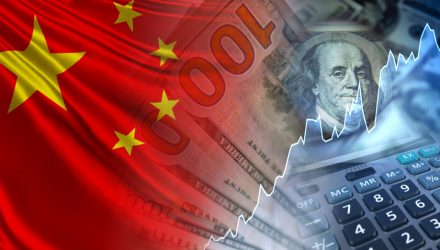There’s a lot happening in China right now as the government pushes back against economic slowdown and deals with a myriad of challenges, and Brendan Ahern, CIO of KraneShares, touched on many of these changes in the most recent China Last Night blog.
Regulatory Easing
Regulatory concerns in China have been a major focal point for international investors since last summer when Chinese regulatory agencies began tackling the rapid, unchecked growth happening in the tech sector in China. The regulations established anti-monopoly practices that impacted some of China’s largest businesses and built in more data protections, all issues that other regions of the world have had to address previously.
While the regulations ultimately ended up more widespread, including taking on issues such as privatized after school childcare as China attempts to encourage population growth, the technology sector was still hit hard with investors largely reluctant to engage with the space due to the regulatory risk.
There have been many signals this year that this regulation has drawn to a close, both from speeches given by upper ranking officials such as Vice Premiere Liu He and from actions like the approval of 73 new games for Tencent and NetEase, indicating that the gaming sector regulation is over.
Real Estate Sector Sees Support
The catastrophic collapse of Evergrande last year sent China’s real estate sector into turmoil, and the country continues to grapple with the ripple effect of defaults that have happened within the sector. The ongoing strife has led to a mortgage strike by many residents who paid a mortgage in advance of a home being built. This is a common practice in China, but in the cascade of developer collapses, those homes have gone unbuilt for six months or more while payments were still being made. The Chinese government looks to be taking definitive action on the issue now, according to Ahern.
“Multiple cities announced their plans to buy properties as affordable housing projects, showing the government’s effort to help solve property companies’ ongoing liquidity issues. According to reports, China may build up to 6.5 million units of affordable housing in the period from 2020 to 2025. The units will be built across 40 cities and will be able to meet the demands of 20 million people, according to a briefing given yesterday by China housing ministry officials,” Ahern wrote.
The government has also rolled out special loans for developers that are struggling to acquire the funding necessary to complete projects, with the People’s Bank of China issuing $148 billion (more than $1 trillion renminbi) in loans for stalled projects. Local banks can use the PBoC loans alongside their own to help real estate developers that have been impacted by the liquidity crisis in the sector.
Delisting Risk Drastically Reduced
The delisting risk of Chinese companies in the U.S. has also been a key focal point in the last year. The issue looks to be resolving, with Chinese and U.S. regulators coming to an official agreement at the end of last month regarding the audit process, which you can read about in more detail here. Inspectors for the U.S. Public Company Accounting Oversight Board could fly to Hong Kong any time beginning this week to start the audit process that typically takes months to complete.
In a likely related move, China Southern Airlines, a state-owned-enterprise currently listed in the U.S., has been approved for a listing on Mainland China. This would better align the company to then opt to voluntarily delist from U.S. markets as other Chinese SOEs have done recently to remove some of the last barriers to PCAOB audits.
Hong Kong Stock Exchange Reconsiders Requirements
On the Hong Kong side, the Hong Kong Stock Exchange, one of the largest markets in Asia with steep entry requirements for listing, is potentially considering lowering its revenue requirements for hardware companies looking to launch an IPO. It could bring a boom of activity if approved at a time when China is looking to push economic growth.
“Previously, the exchange had onerous requirements for listed companies’ revenue. Such requirements are not found on US exchanges,” Ahern explained.
The move by the Hong Kong Stock Exchange comes at a time when the Chinese government is actively adding stimulus to the flagging economy ahead of the 20th National Congress of the Chinese Communist Party in October, where President Xi Jinping seeks a third term.
COVID lockdowns remain a risk for China, with over 30 regions currently ordering people to stay at home and tens of millions of residents impacted.
For more news, information, and strategy, visit the China Insights Channel.

